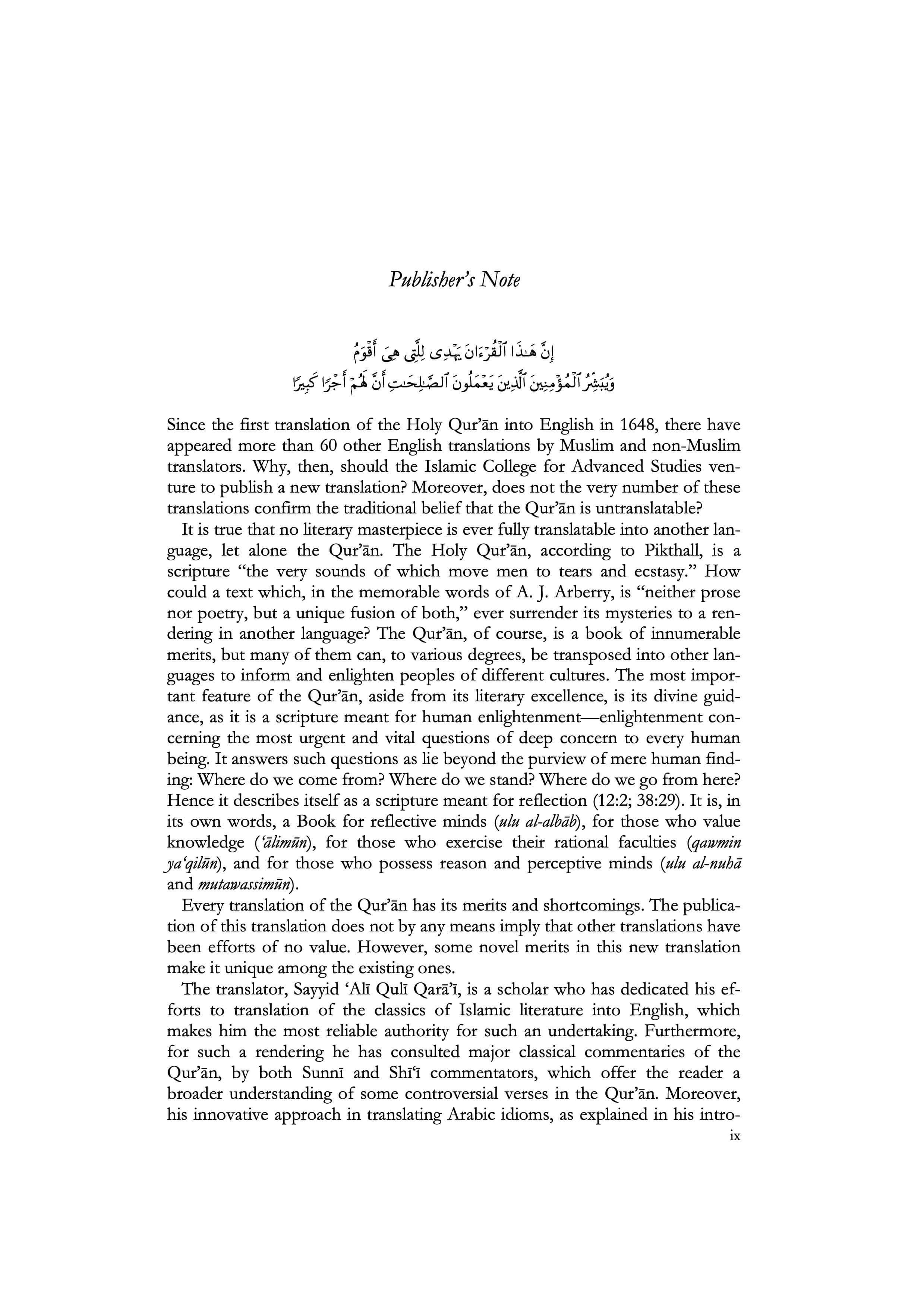Ali Quli Qarai, The Qur’ān with a Phrase-by-Phrase English Translation (2005)
Publisher’s Note
ويبشر المؤمنين الذين يعملون الصالحات أن لهم أجرا كبيرا
Since the first translation of the Holy Qur’ān into English in 1648, there have appeared more than 60 other English translations by Muslim and non-Muslim translators. Why, then, should the Islamic College for Advanced Studies venture to publish a new translation? Moreover, does not the very number of these translations confirm the traditional belief that the Qur’ān is untranslatable?
It is true that no literary masterpiece is ever fully translatable into another language, let alone the Qur’ān. The Holy Qur’ān, according to Pikthall, is a scripture “the very sounds of which move men to tears and ecstasy.” How could a text which, in the memorable words of A. J. Arberry, is “neither prose nor poetry, but a unique fusion of both,” ever surrender its mysteries to a rendering in another language? The Qur’ān, of course, is a book of innumerable merits, but many of them can, to various degrees, be transposed into other languages to inform and enlighten peoples of different cultures. The most important feature of the Qur’ān, aside from its literary excellence, is its divine guidance, as it is a scripture meant for human enlightenment—enlightenment concerning the most urgent and vital questions of deep concern to every human being. It answers such questions as lie beyond the purview of mere human finding: Where do we come from? Where do we stand? Where do we go from here? Hence it describes itself as a scripture meant for reflection (12:2; 38:29). It is, in its own words, a Book for reflective minds (ulu al-albāb), for those who value knowledge (‘ālimūn), for those who exercise their rational faculties (qawmin ya‘qilūn), and for those who possess reason and perceptive minds (ulu al-nuhā and mutawassimūn).
Every translation of the Qur’ān has its merits and shortcomings. The publication of this translation does not by any means imply that other translations have been efforts of no value. However, some novel merits in this new translation make it unique among the existing ones.
The translator, Sayyid ʻAlī Qūlī Qarāʼī, is a scholar who has dedicated his efforts to translation of the classics of Islamic literature into English, which makes him the most reliable authority for such an undertaking. Furthermore, for such a rendering he has consulted major classical commentaries of the Qur’ān, by both Sunnī and Shīʻī commentators, which offer the reader a broader understanding of some controversial verses in the Qur’ān. Moreover, his innovative approach in translating Arabic idioms, as explained in his introduction
